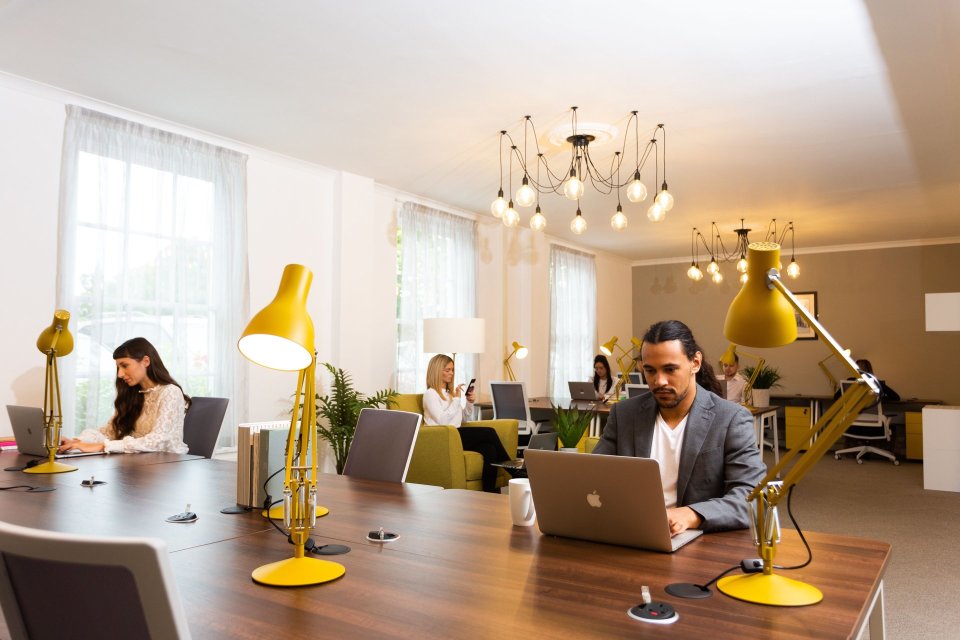Working Patterns Across the UK: How Are They Changing?
By Bruntwood

Since 2003, employees in the UK have had the right to request ‘flexible working’. While initially utilised by parents and other carers, in late 2022 the UK Government extended this to apply to any employee - increasing the options available to both companies and workers.
The pandemic understandably increased demand for a shift in previously standard working patterns. As the country emerged from lockdown in 2022, 84% of employees wanted to continue hybrid working in some form or another with 78% of workers saying that hybrid working gave them a better work/life balance.
A survey in January this year showed that nearly 63% of managers consider that it boosts motivation, and the Chartered Institute of Personnel & Development (CIPD) is now recommending that flexible working practices should be the norm.
Why is this?
In the first instance it allows employees greater control over their time. It offers employees the freedom to choose when they work, allowing for a better balance between personal and professional commitments.
However, it's essential to note that not everyone desires a departure from the traditional 9-5 office life. Some individuals prefer the structure and routine provided by defined working hours, not to mention a fixed, dedicated space to work.
It is crucial to respect these preferences and not assume that flexible working is universally preferred or suitable for all. That said, where businesses are able to extend their office hours to cater for different employee preferences, it’s likely that productivity and staff wellbeing will be positively impacted.
How Can Businesses Accommodate Changing Work Patterns?
To adapt to the changing work patterns and accommodate the increasing demand for flexible working, businesses are evolving, and implementing new policies. These have included moving premises to a location that can offer more than just office space.
By offering onsite facilities like showers and gyms, companies can empower employees to incorporate exercise into their workday or freshen up before heading out for personal activities - thus blending work and leisure in a way previously unseen.
In addition, some office locations now double up as event spaces, creating the opportunity to host events and attend activities without having to travel.
Working hours are no longer just 9-5. Businesses can accommodate changing work patterns by changing their core hours and scheduling practices.
For example, some companies have adopted the policy of only booking meetings between 10am and 4pm each day. This approach allows employees to have more control over their mornings and evenings, reducing the disruption caused by early or late meetings.
Alongside this, a company could extend general office opening hours to cater to both early birds and night owls, allowing employees to work when they are most productive.
All these new approaches have led to a more aligned inter-company approach, with colleagues coordinating meeting times and places to best suit them.
How Do Businesses Avoid An ‘Always-On’ Culture?
While the rise of flexible working has brought numerous benefits, it has also resulted in the emergence of an 'always-on' culture. Not only do employees contend with emails out of hours, but with the blurring of work and home boundaries, many hybrid workers find it challenging to disconnect from work and enjoy their personal time. To address this issue, businesses need to establish clear boundaries and promote healthy work-life integration.
Encouraging employees to take regular breaks and providing support for time management and workload prioritisation can help prevent burnout and improve overall wellbeing. Additionally, setting expectations around email and other communication outside of working hours can help establish boundaries and reduce the pressure to be constantly available.
Flexible Office Space for Flexible People
Outside of the traditional office space, there is a growing demand to support freelancers, contractors or remote workers; those that require office space on a flexible basis.
Accordingly, this has led to an increase in popularity for flexible coworking spaces - such as those provided by Bruntwood with their pay as you go offering.
Working like this allows individuals to work effectively while being free from the constraints of a long-term lease. It provides an alternative environment for working to help boost creativity, while this flexibility allows them to maintain their productivity while also enjoying their personal commitments.
For example, if someone is in Manchester to see a friend over the weekend, they could hire a space from Bruntwood on a Monday or a Friday to take advantage of flexible working patterns and not have to travel at an inconvenient time.
What Does the Future Hold?
The future of working patterns in the UK is undoubtedly changing. While the traditional 9-5 office life may not be entirely gone, it is clear that there is a growing demand for flexibility and autonomy in the workplace.
By embracing flexible working patterns and providing the necessary infrastructure and support, businesses can create a thriving work environment that promotes productivity, wellbeing, and work-life balance for all.
Stay Connected!
Sign up to our newsletter for the latest news, updates and offers.